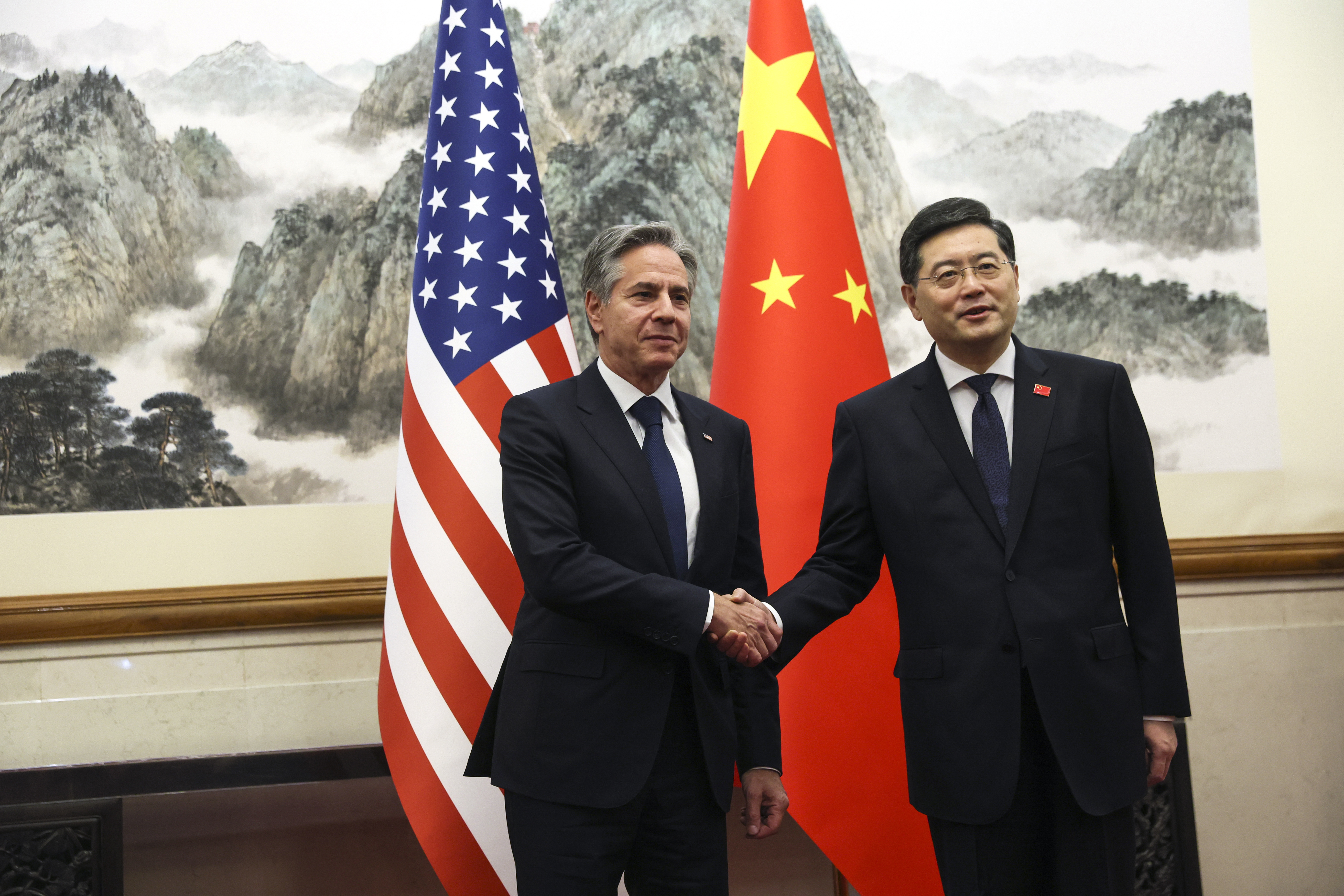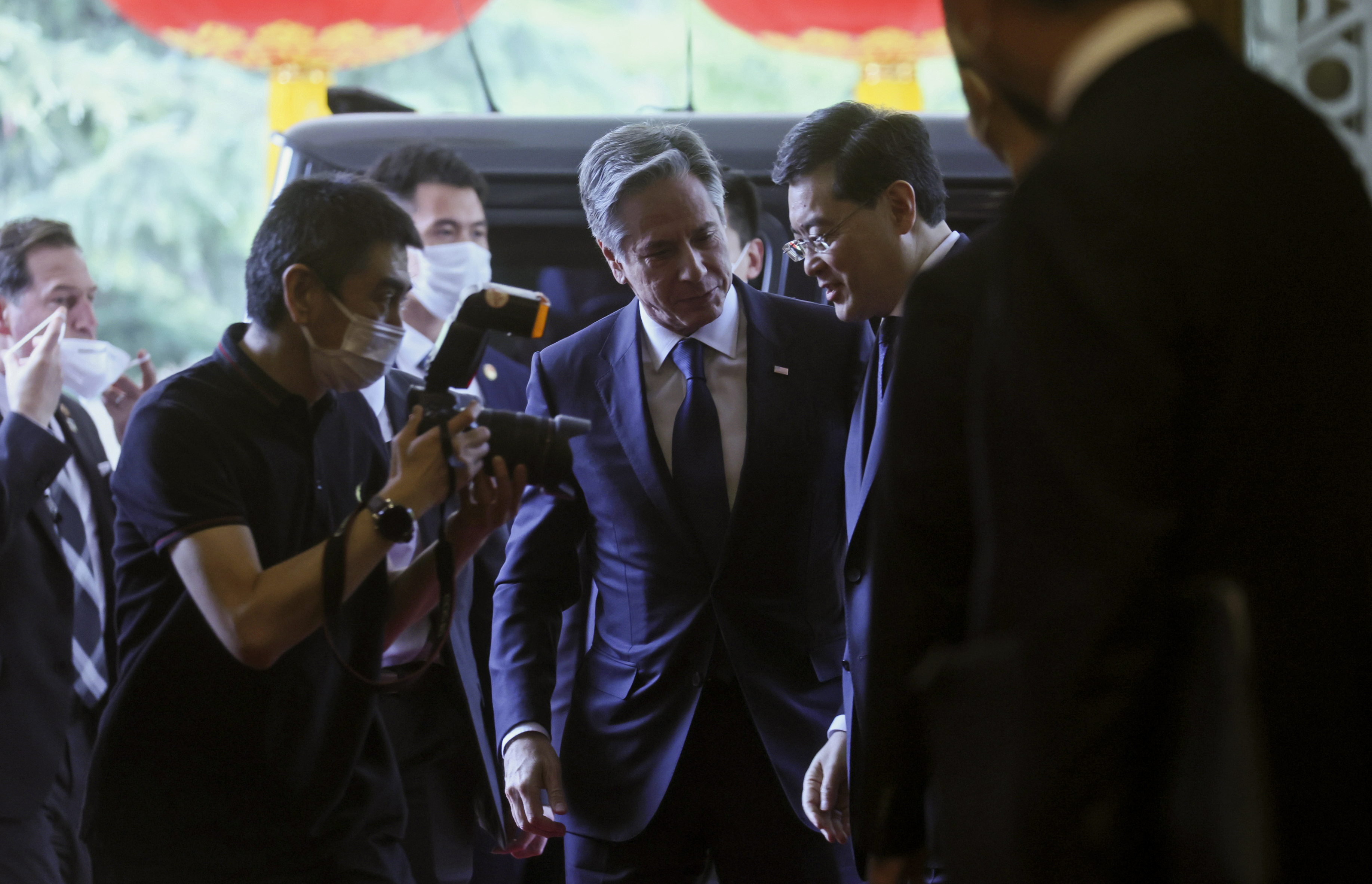United States Secretary of State Antony Blinken has kicked off two days of high-stakes diplomatic talks in Beijing aimed at trying to cool exploding US-China tensions that have set many around the world on edge.
Blinken opened his program by meeting Chinese Foreign Minister Qin Gang for an extended discussion to be followed by a working dinner.
He'll have additional talks with Qin, as well as China's top diplomat Wang Yi and possibly President Xi Jinping, on Monday.
READ MORE: Woman seriously injured in dramatic Perth highway crash
Neither Blinken nor Qin made any substantive comments to reporters as they began the meeting at the Diaoyutai State Guesthouse.
Despite Blinken's presence in the Chinese capital, prospects for any significant breakthroughs are slim, as already strained ties have grown increasingly fraught in recent years.
Animosity and recriminations have steadily escalated over a series of disagreements that have implications for global security and stability.
Blinken is the highest-level American official to visit China since President Joe Biden took office and the first secretary of state to make the trip in five years.
Biden and Xi agreed to Blinken's trip early at a meeting last year in Bali.
It came within a day of happening in February but was delayed by the diplomatic and political tumult brought on by the discovery of what the US says was a Chinese spy balloon flying across the United States that was shot down.
READ MORE: Prisoner allegedly murdered by cellmate inside Adelaide prison
The list of disagreements and potential conflict points is long, ranging from trade with Taiwan, human rights conditions in China and Hong Kong to Chinese military assertiveness in the South China Sea and Russia's war in Ukraine.
Blinken will also be pressing the Chinese to release detained American citizens and to take steps to curb the production and export of fentanyl precursors that are fuelLing the opioid crisis in the United States.
US officials have said Blinken will raise each of these points, though neither side has shown any inclination to back down on their entrenched positions.
Shortly before leaving, Blinken emphasised the importance of the US and China establishing and maintaining better lines of communication.
READ MORE: Man charged after allegedly holding tram commuters at knifepoint
The US wants to make sure "that the competition we have with China doesn't veer into conflict" due to avoidable misunderstandings, he told reporters.
Biden and Xi had made commitments to improve communications "precisely so that we can make sure we are communicating as clearly as possible to avoid possible misunderstandings and miscommunications," Blinken said on Friday.
Xi offered a hint of a possible willingness to reduce tensions, saying in a meeting with Microsoft co-founder Bill Gates on Friday that the United States and China can cooperate to "benefit our two countries".
"I believe that the foundation of Sino-US relations lies in the people," Xi said to Gates. "Under the current world situation, we can carry out various activities that benefit our two countries, the people of our countries, and the entire human race."
Biden told White House reporters on Saturday he was "hoping that over the next several months, I'll be meeting with Xi again and talking about legitimate differences we have, but also how … to get along".
Chances for such a meeting could come at a Group of 20 leaders' gathering in September in New Delhi and at the Asia-Pacific Economic Cooperation summit in November in San Francisco that the United States is hosting.
Since the cancellation of Blinken's trip in February, there have been some high-level engagements.
CIA chief William Burns travelled to China in May, while China's commerce minister travelled to the US And Biden's national security adviser Jake Sullivan met with Wang in Vienna in May.
But those have been punctuated by bursts of angry rhetoric from both sides over the Taiwan Strait, their broader intentions in the Indo-Pacific, China's refusal to condemn Russia for its war against Ukraine, and US allegations from Washington that Beijing is attempting to boost its worldwide surveillance capabilities, including in Cuba.
Sign up here to receive our daily newsletters and breaking news alerts, sent straight to your inbox.








